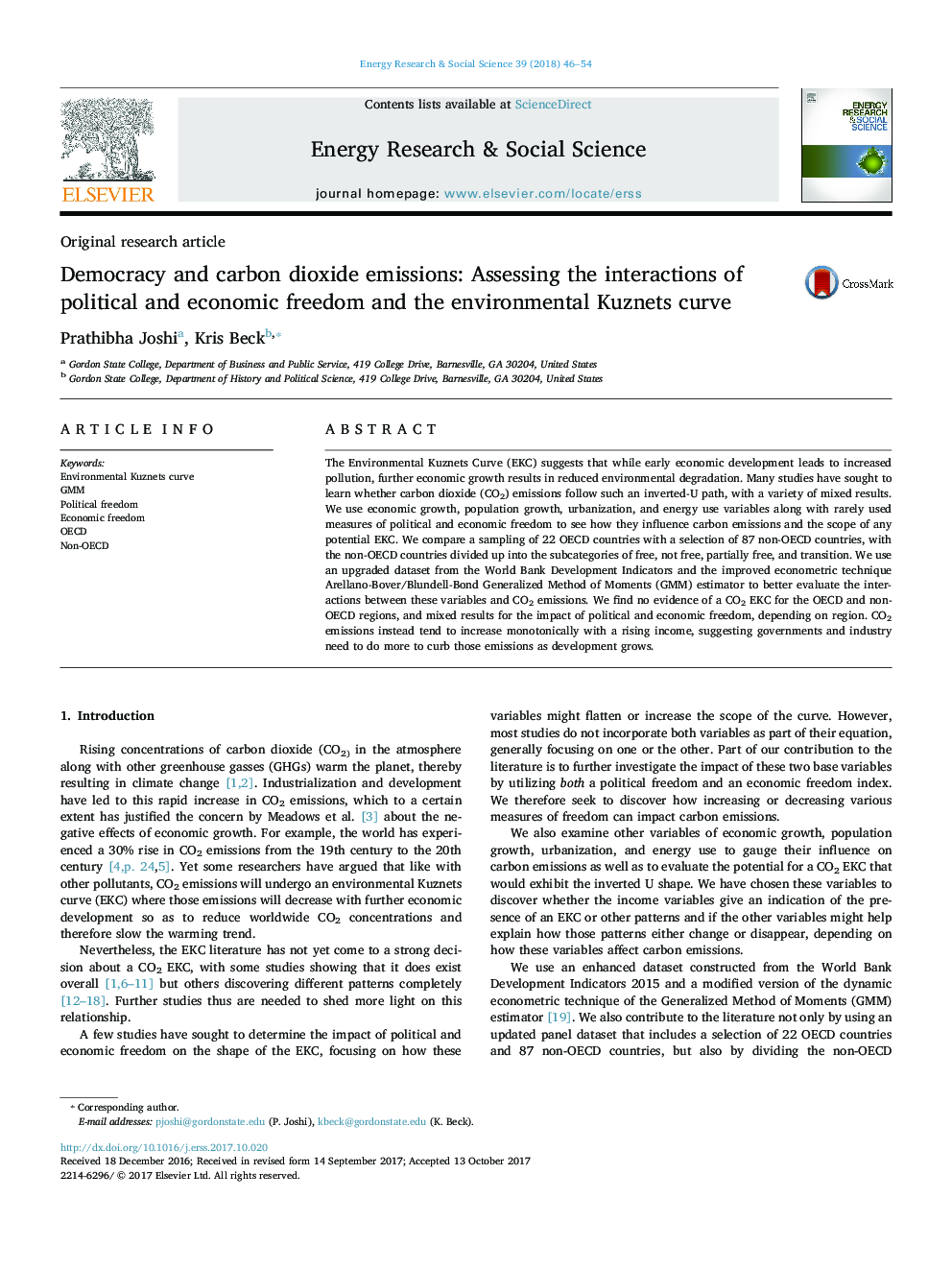| کد مقاله | کد نشریه | سال انتشار | مقاله انگلیسی | نسخه تمام متن |
|---|---|---|---|---|
| 6557611 | 1422562 | 2018 | 9 صفحه PDF | دانلود رایگان |
عنوان انگلیسی مقاله ISI
Democracy and carbon dioxide emissions: Assessing the interactions of political and economic freedom and the environmental Kuznets curve
ترجمه فارسی عنوان
انتشار دموکراسی و انتشار دی اکسید کربن: ارزیابی تعاملات آزادی سیاسی و اقتصادی و منحنی کوزنتس محیط زیست
دانلود مقاله + سفارش ترجمه
دانلود مقاله ISI انگلیسی
رایگان برای ایرانیان
کلمات کلیدی
موضوعات مرتبط
مهندسی و علوم پایه
مهندسی انرژی
انرژی (عمومی)
چکیده انگلیسی
The Environmental Kuznets Curve (EKC) suggests that while early economic development leads to increased pollution, further economic growth results in reduced environmental degradation. Many studies have sought to learn whether carbon dioxide (CO2) emissions follow such an inverted-U path, with a variety of mixed results. We use economic growth, population growth, urbanization, and energy use variables along with rarely used measures of political and economic freedom to see how they influence carbon emissions and the scope of any potential EKC. We compare a sampling of 22 OECD countries with a selection of 87 non-OECD countries, with the non-OECD countries divided up into the subcategories of free, not free, partially free, and transition. We use an upgraded dataset from the World Bank Development Indicators and the improved econometric technique Arellano-Bover/Blundell-Bond Generalized Method of Moments (GMM) estimator to better evaluate the interactions between these variables and CO2 emissions. We find no evidence of a CO2 EKC for the OECD and non-OECD regions, and mixed results for the impact of political and economic freedom, depending on region. CO2 emissions instead tend to increase monotonically with a rising income, suggesting governments and industry need to do more to curb those emissions as development grows.
ناشر
Database: Elsevier - ScienceDirect (ساینس دایرکت)
Journal: Energy Research & Social Science - Volume 39, May 2018, Pages 46-54
Journal: Energy Research & Social Science - Volume 39, May 2018, Pages 46-54
نویسندگان
Prathibha Joshi, Kris Beck,
